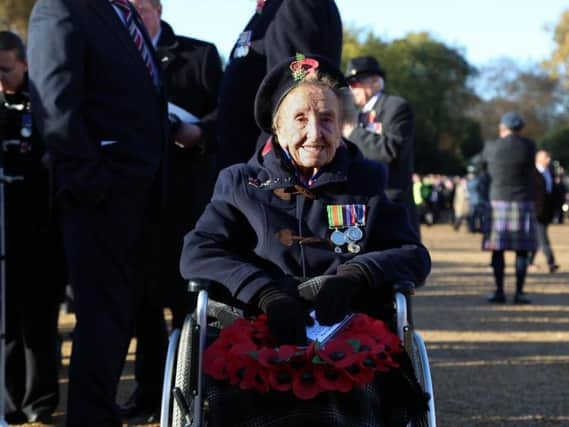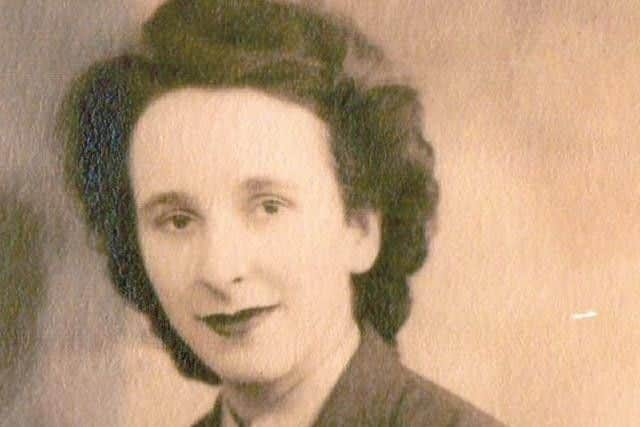Blind Second World War veteran from Shirebrook to march to London's Cenotaph


Margaret Wilson, 96, joined the Women’s Auxiliary Air Force in 1942 and served our country until the end of the war, despite “fierce opposition” from her mother.
She has been a strong supporter of the annual commemorations and last year took part in the march for the first time.
Advertisement
Hide AdAdvertisement
Hide AdAnd now she will be joining more than 100 other veterans on the parade to London as part of a scheme organised by leading blindness charity Blind Veterans UK.


She said: “I marched for the first time last year and it was absolutely fantastic.
“A former chairman of the charity pushed my wheelchair and I was given the honour of carrying the poppy wreath.
“I was a Remembrance Sunday organiser in Shirebrook for decades but never got to lay the wreath there.
Advertisement
Hide AdAdvertisement
Hide Ad“Since last year I’ve been asked to go into local schools to talk about my life and what Remembrance Sunday means.
“I’m going to feel so proud to be there again.”
Margaret served as a wireless operator during the war, and recalls getting “bombed left, right and centre”.
She added: “It was hard. I don’t know how I’m still here.
“I watched a plane come down at RAF Syerston. I had to send a message in Morse code to another airfield down south, to say ‘It is with regret we have to inform you that your son was killed.’ It stays with you, you can’t forget things like that.
“My son took me to visit the monument at Syerston this year and his name was on there.”
Advertisement
Hide AdAdvertisement
Hide AdMargaret lost her sight much later in life due to age-related macular degeneration, the leading cause of sight loss in older people.
She said: “You try and get by as long as you can when you’re told you’re losing your sight but when it started to get very bad I did feel really miserable. I can’t see to read or write now.”
She started receiving support from Blind Veterans UK in 2016 and describes the impact the charity has made as “life changing”.
The charity was founded more than 100 years ago to support those blinded during the First World War.